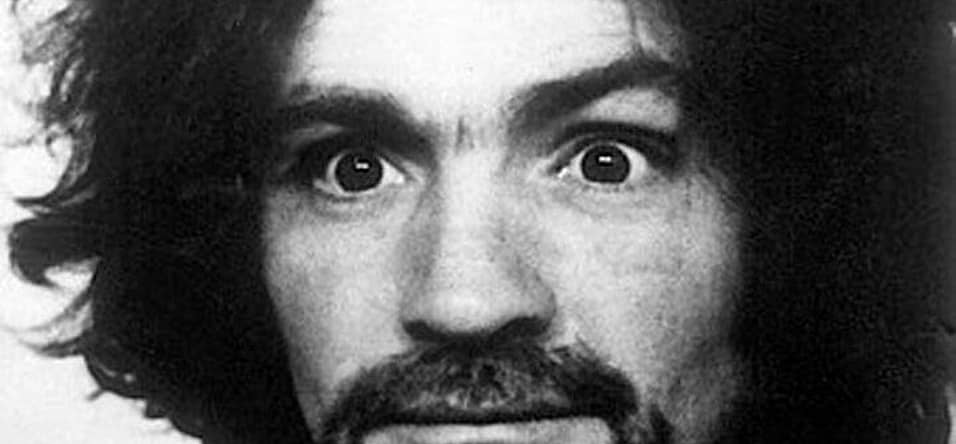
Charles Manson's birthday
Charles Manson, born on November 12, 1934, led a notorious life marked by crime and manipulation. His early years were troubled, setting a foundation for later unlawful activities.
Manson became infamous in the late 1960s for forming a cult-like following known as the Manson Family. He influenced his followers to commit heinous crimes, most notably the 1969 Tate-LaBianca murders.
Despite not committing these murders himself, Manson’s role as the instigator landed him a life sentence. His life, filled with criminal acts and disturbing leadership, ended in prison on November 19, 2017.
Charles Manson’s Early Life
Charles Manson was born in Cincinnati, Ohio, to a teenage mother. His childhood was unstable and filled with neglect.
Manson’s mother, Kathleen Maddox, was just 16 when she had him. She was often absent, leading to Manson spending much of his early years with relatives or in foster care. His mother’s brief marriage gave him the name “Manson,” but the union didn’t last.
Manson’s education was sporadic and interrupted. He attended public schools but never settled into the routine of a student.
His schooling was frequently disrupted by his mother’s erratic lifestyle and his rebellious behavior. Manson faced challenges in school due to his tumultuous home life, leading him to act out.
By age nine, Manson had started engaging in petty crimes. These activities escalated as he grew older. He was known to be manipulative, even as a child.
His criminal behavior led him to various reform schools, where education was secondary to discipline. These institutions tried to correct his behavior, but Manson often rebelled against their strict rules.
Manson’s lack of a stable family environment and formal education played a significant role in his later life. His early experiences with crime and manipulation shaped his infamous path.
This period set the foundation for the disturbing leadership he would exhibit as an adult, captivating and horrifying the world.
The Infamous Legacy of Charles Manson
Manson’s most significant and disturbing impact was the formation of the Manson Family, a cult-like group he led in the late 1960s.
He attracted a loyal following, primarily young women, who were mesmerized by his charismatic yet manipulative personality.
Manson’s ability to persuade and manipulate these individuals is, in a twisted sense, an example of his influential power.
Despite his lack of formal education, Manson had a certain charisma that drew people to him. He fancied himself a musician and even mingled with prominent figures in the music industry.
His musical endeavors, however, were more about manipulation than genuine success. He used music to spread his controversial ideas and to bond with his followers.
Another aspect often discussed is Manson’s ability to evade direct involvement in the heinous crimes committed by his followers.
While he was the mastermind behind the Tate-LaBianca murders in 1969, he maintained a level of separation that initially complicated his prosecution. His skill in avoiding direct culpability, though morally reprehensible, was a tactic that made his case unique and challenging for the legal system.
Manson’s life, filled with crime and manipulation, led to a life sentence in prison. While devoid of positive achievements, his story continues to be studied in criminal psychology and sociology.
The fascination with his life speaks to a dark curiosity about human nature and the complexities of influence and control.
Interesting Facts About Charles Manson
Musical Aspirations: Manson aspired to be a musician and even recorded an album titled “Lie: The Love and Terror Cult” to secure a record deal.
Beach Boys Connection: One of Manson’s songs, “Cease to Exist,” was reworked and recorded by the Beach Boys under “Never Learn Not to Love.“
Pen Pal Relationship: While in prison, Manson developed a pen pal relationship with a Canadian woman, who later attempted to obtain a license to marry him.
Brush with Scientology: During his life, Manson briefly explored Scientology and was rumored to have been involved with the church while in prison in the early 1960s.
Escape Artist: As a child in a reform school, Manson was known for his numerous escape attempts, demonstrating early on his disdain for authority and confinement.
Psychological Studies: Manson has been the subject of numerous psychological studies and analyses, with experts trying to understand his mindset and influence.
Persistent Media Presence: Despite being incarcerated, Manson maintained a consistent presence in the media through interviews and coverage of his parole hearings, keeping him in the public eye for decades.




